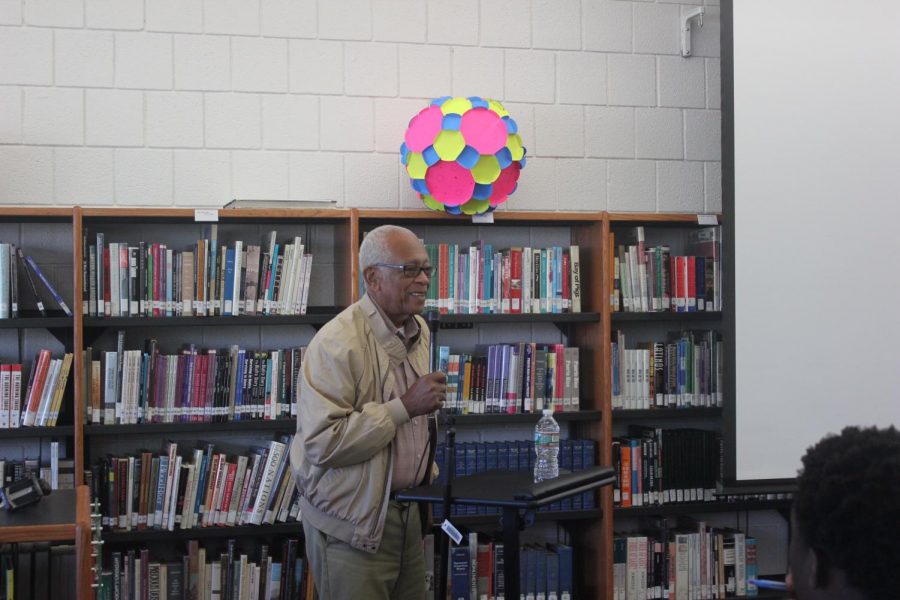Activist Hollis Watkins Visits CRLS
Pictured: Hollis Watkins speaking in the CRLS library.
October 30, 2017
On September 29th, students from several classes gathered in the Pearl K. Wise Library to listen to Hollis Watkins, the son of sharecroppers. Watkins was a member of the Student Nonviolent Coordinating Committee (SNCC) during what was known as the “Freedom Summer.” Taking place in Mississippi in 1964, the summer had the goal of empowering black Americans by getting them registered to vote. The movement faced serious resistance, and arrests and violence were commonplace.
Watkins, who did most of his work in McComb, recalled what it was like to live in Mississippi at that time. He explained that it was an unspoken rule that black people stepped off the sidewalk when white people were passing, and that black men had to be especially careful about making eye contact with white women for fear of being accused of “eyeball rape.” He also shared his account of being arrested for protesting and being sent to a maximum security state prison where he shared a six-by-six foot jail cell with fourteen other men.
According to Watkins, helping to get people registered to vote kept him motivated through many trials and tribulations; he made sure to celebrate any small victories. In addition to authoring Brother Hollis: The Sankofa of a Movement Man, Watkins is the founder and current president of Southern Echo, a group which works to promote and develop leadership skills in African-American residents of rural Mississippi towns.
Words of wisdom and stories weren’t the only thing Watkins shared with the group. He also led everyone in songs with lyrics like: “Ain’t scared of nobody cause I want my freedom,” and, “Get on board children, children. Let’s fight for human rights.” The songs added to the experience of students like senior Tara Jones, who said, “I liked that he included some of the spirituals and the songs that they used. I feel like it helped students feel more close and relate to that time.” However, those who were unable to make the event did not entirely miss out, as some of Watkins’ singing is on the album Sing For Freedom: The Story of the Civil Rights Movement Through Its Songs, which can be found on Spotify.
Watkins made clear that his intentions were to emphasize the importance of collaboration between veterans of earlier movements and the youth. He advised those looking to make change to try to learn from the past. Many teachers, including Ms. FitzGerald, appreciated his advice. She said, “I think it’s really important for young people, especially young people interested in activism and justice, [to know] that they are part of a long tradition.”
The talk ended with Watkins leading the crowd in one last song about freeing Nelson Mandela. As senior Jonathan Cenescar, who was in attendance and helped lead the singing, said, “I think his words and wisdom were very powerful, and it definitely spoke to me.”
At a time when our country is especially divided and many feel that the future looks bleak, the positivity of a man who has created change before is inspiring and serves as a reminder of what we can do working together.
This piece also appears in our October print edition.










